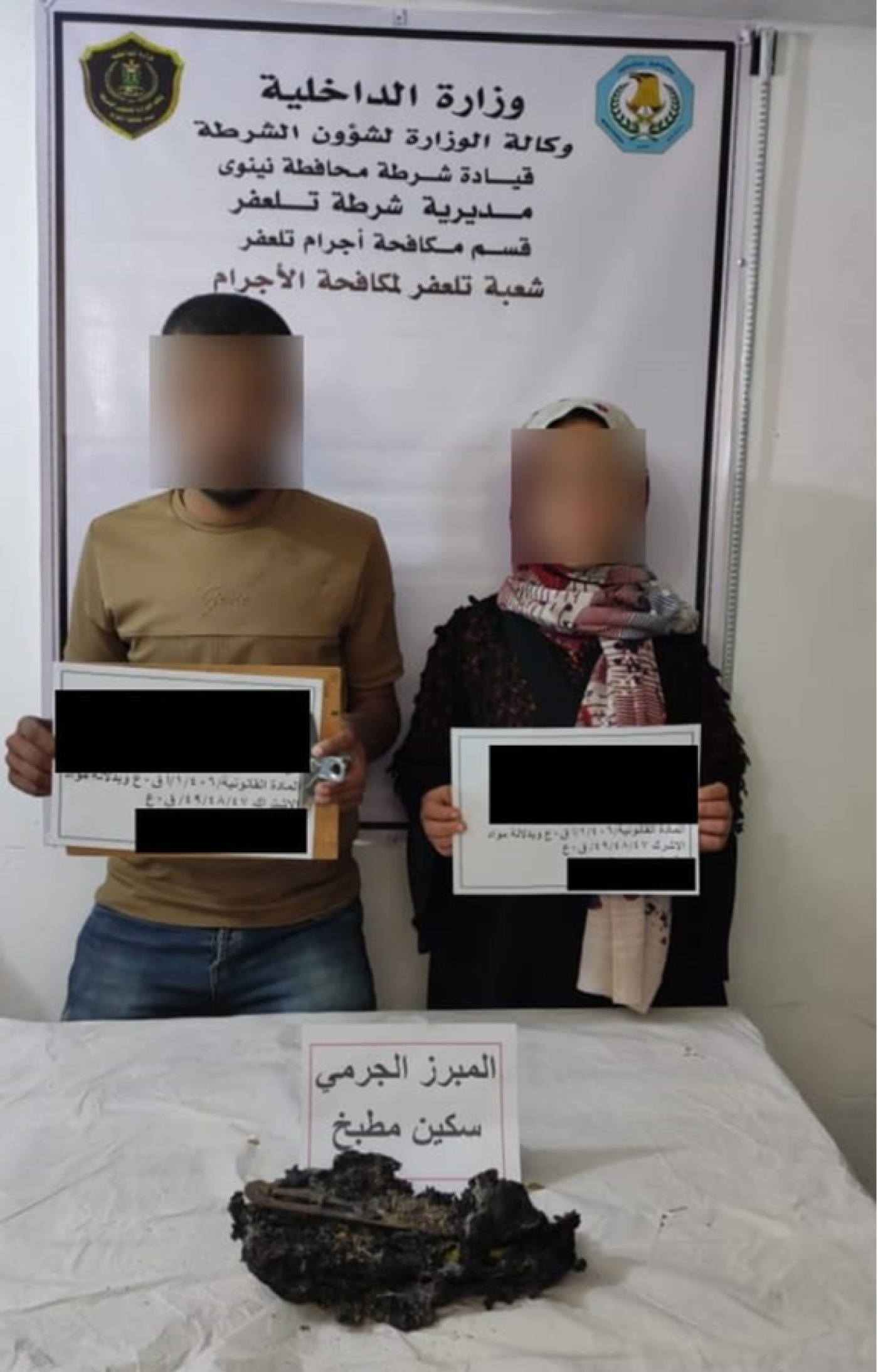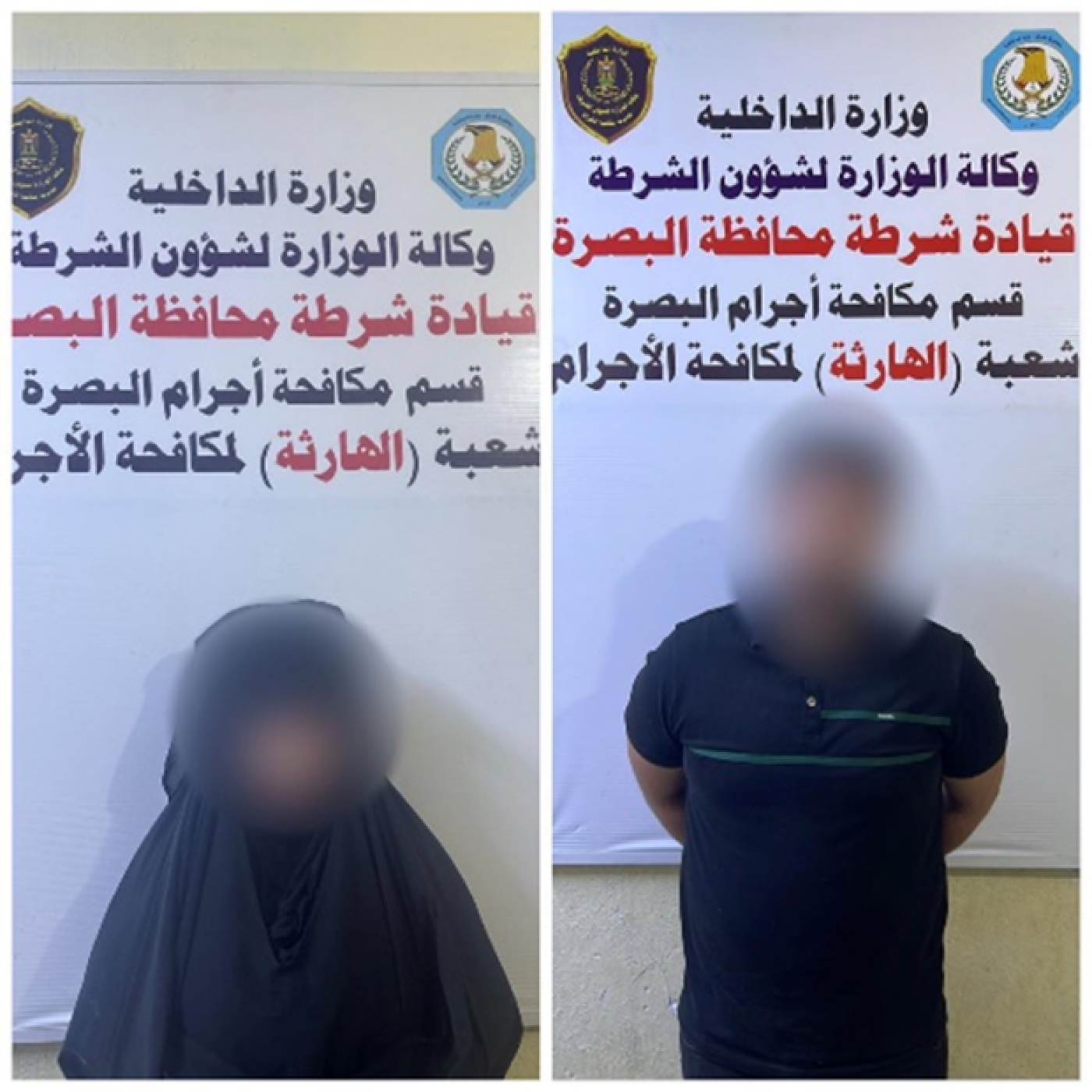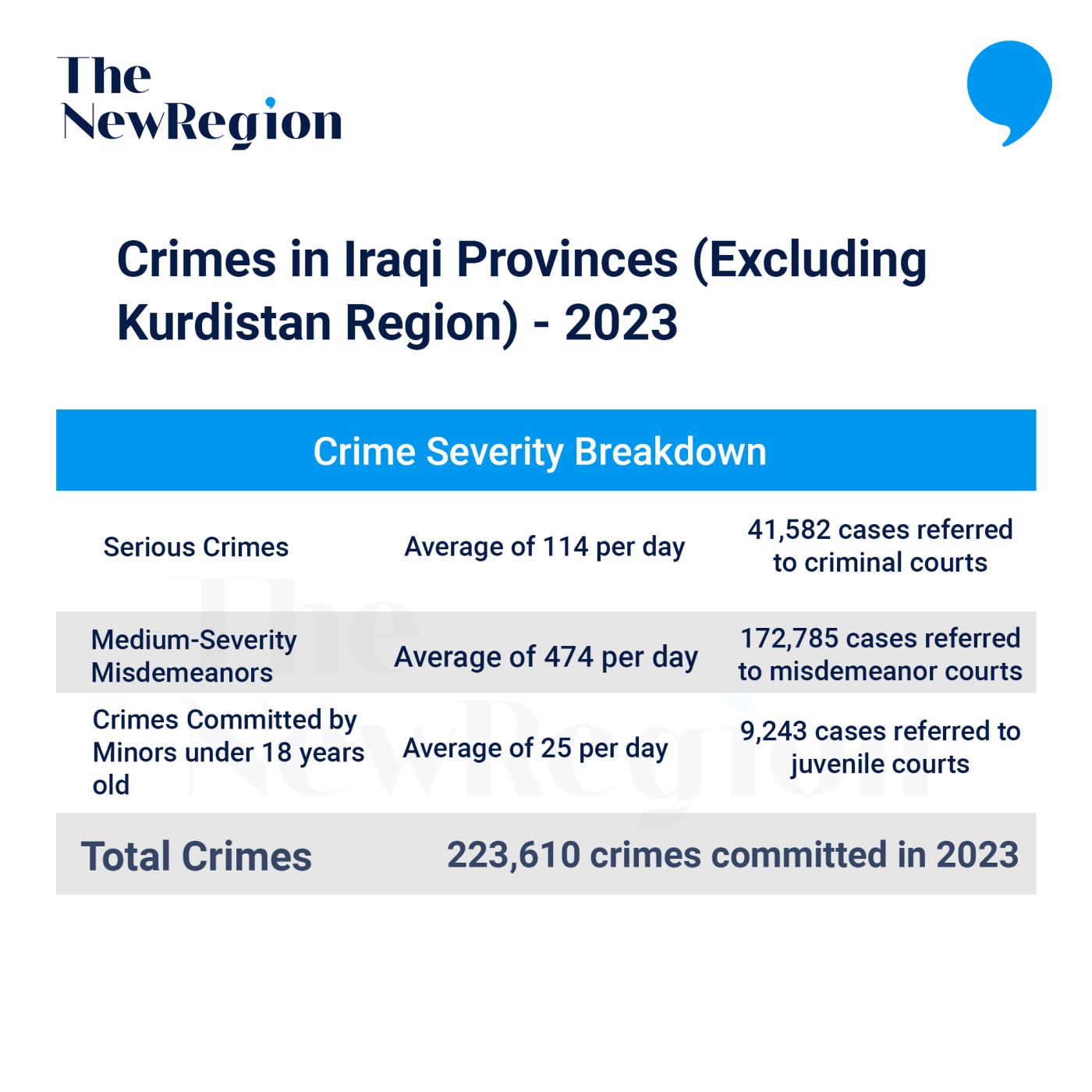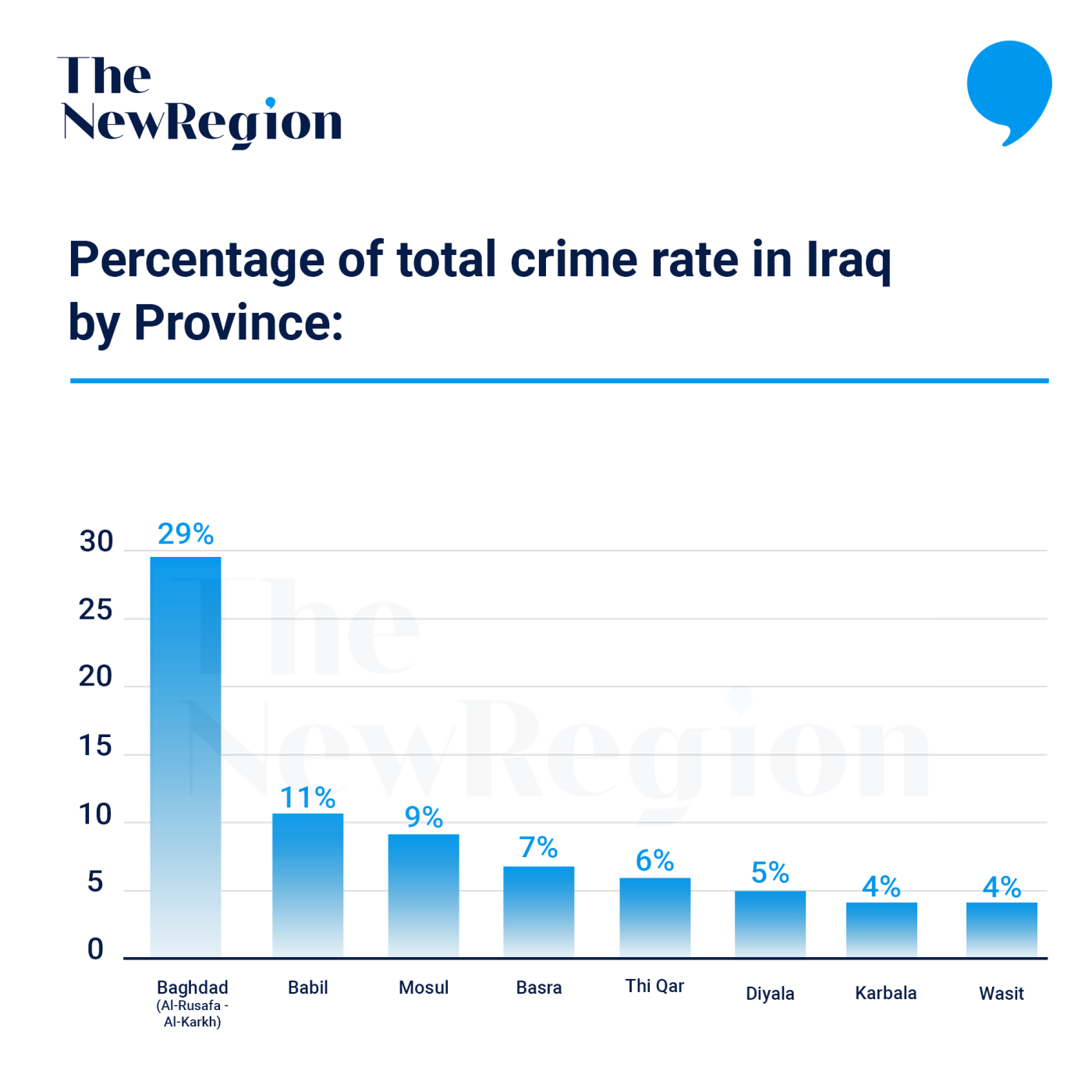At 9:30 PM on Wednesday, May 8th, 2024, tragedy struck in Basra, southern Iraq. 51-year-old Abbas Hamza Hussein Al-Issaawi killed all 12 members of his family present in their home using a Kalashnikov rifle. He then turned the weapon on himself.
Colonel Aziz Al-Abbadi, media director of Basra Operations Command, confirmed the incident the following morning. He claims a swift investigation by the police concluded the matter. Al-Abbadi said, "The individual responsible for the massacre was the father, driven by financial debts totaling over one billion dinars (US$767,000). These pressures took a toll on his mental health, ultimately leading him to commit this horrific act before taking his own life."
That night, a video emerged on social media. Predominantly women and children, bathed in blood in a room in the alleged perpetrator's residence in the Al-Muwazifeen neighborhood of the Shatt al-Arab district. Local bloggers were skeptical of the police's official account. This doubt was amplified by Abbas Hamza’ss relatives, who vehemently deny any knowledge of financial difficulties, psychological distress, or substance abuse issues on his part.
Shocking footage on social media captures the aftermath of a tragic incident in #Basra province, where a father took the lives of his 12 family members, including a one year old baby, before ending his own life. Reports indicate that financial difficulties and debts have driven… pic.twitter.com/tTVbuCNIif
— The New Region (@thenewregion) May 8, 2024
Instead, rumors abound suggesting the involvement of professional hitmen or militia members in the massacring of the family, prompting heightened security measures to safeguard potential targets by attributing responsibility to the father.
Legal experts were astonished by the police's swift declaration the morning following the crime, pointing the finger at Abbas Hamza with such certainty. The claim came despite ongoing investigations and pending forensic reports, raising significant concerns within legal circles.
In light of the skepticism surrounding the case, Ali Kanaan, the Director of the Office of the Parliamentary Defense Committee, released a statement on May 9th affirming that Abbas Hamza, the head of the family, was indeed the perpetrator. Kanaan explained that Hamza was indebted to the doubled amount of two billion dinars, alleging "this amount was loaned to him by another individual who later perpetrated fraud and absconded to an undisclosed location."
Deputy Kanaan explained, "The father was married to two wives. The second was younger and Syrian. He visited her before the incident to collect her gold to sell. He then returned to his primary family, visibly distraught, which ultimately led to the tragic decision to murder them all. He appears to have been overwhelmed by the responsibility, prompting him to take such drastic actions before ending his own life.
"Before carrying out the crime, the father left a message for a close friend, entrusting him with the care of his second wife." The deputy underscored that "these details represent conclusive findings following a thorough investigation, which involved gathering and cross-referencing information concerning both the perpetrator's family and the victims simultaneously."
This incident is just one in a series of almost daily occurrences, reflecting a surge in crime across Iraq. Experts point to a multitude of factors contributing to this rise, including the proliferation of firearms, the influence of militias, deficiencies in state security, widespread corruption, drug abuse, high unemployment, poverty, and a lack of accountability for offenders.
Fabricated investigation results
Legal expert Khalil Idris has leveled accusations against the Ministry of Interior, alleging that it frequently announces fabricated investigation outcomes, particularly in high-profile cases. According to Idris claims, there is a tendency to rush the disclosure of investigation findings to showcase the ministry's competence and authority. However, he asserts that this haste compromises accuracy and often enables the actual perpetrators to evade justice.
He poses a thought-provoking question: "Considering the Basra incident, where the head of a family and 12 others were reportedly killed according to the Ministry of Interior, what if this individual and his family were victims of organized crime? Is it logical for the ministry to unveil its investigation findings on such a significant case in just a matter of hours?"
He underscores, "This is not an isolated incident,"he says, before making further claims and illustrates with further instances. On May 9th, 2024, Nineveh Police revealed the culprit behind a harrowing crime where a young woman and her seven-year-old child were slain in Tal Afar district, merely 12 hours after the tragedy unfolded. They attributed the act to the victim's sister-in-law and an accomplice.
Similarly, in Nineveh, on April 25th this year, 2024, authorities revealed that parents residing in Al-Zahraa compound in Bartella district, east of Mosul, had fatally assaulted their two daughters, aged 3 and 7. Swiftly gathered criminal evidence implicated the parents as the assailants, with one of their sons aiding in the commission of the crimes.
Furthermore, on May 7th, Basra Police Directorate revealed that a woman had confessed, implicating her lover in the murder of her husband. Both were apprehended under the statutes of Article 406 of the Penal Code. The authorities identified the culprits in short order in this case as well.

On May 3rd, the Ministry of Interior reported the arrest of the perpetrators involved in the killing of retired dentist Faisal Al-Huwaizi in Najaf province. The arrest took place mere hours following the crime, with theft cited as the motive.
Khalil weighed in on the cases mentioned, stating, "It's widely understood that the process of gathering criminal evidence and conducting forensic examinations involves thorough investigative procedures, evidence collection, analysis, witness interviews, and other steps, typically spanning several days. It's highly unusual for these processes to conclude within a matter of hours, unless the perpetrator is caught in the act, a scenario that doesn't apply to all cases that garner public attention and prompt the Ministry of Interior to announce arrests within such a short timeframe."
He recognizes the Ministry of Interior's efforts in fostering citizen trust, emphasizing that it "exerts significant efforts to uphold security." However, he stresses the importance of transparency in major crime investigations, noting that a lack of credibility could allow the true perpetrators to evade justice.
One human rights activist, speaking anonymously to avoid possible repercussions, asserts that the majority of high-profile crimes that capture public attention and reverberate through social media and news platforms are promptly addressed by the Ministry of Interior, which announces the arrest of the suspects. These suspects, the activist claims, are often found to be relatives or acquaintances of the victim in some capacity.
"Investigative authorities find it convenient to follow directives from their superiors to swiftly resolve and close the case. Consequently, the closest individual under suspicion becomes the target of the ready-made accusation."
The activist does not dismiss the possibility that confessions could be coerced or evidence manipulated. They argue that public interest is better served by a competent police force staffed with expert personnel who can thoroughly investigate crimes and bring perpetrators to justice through the correct legal channels.
"While the outcomes of major crimes are promptly publicized, other investigations can drag on for months or even years without yielding any results, despite the presence of surveillance cameras capturing the perpetrators' actions." He specifically mentions the assassinations of activists, with the most notable being political analyst Hashem Al-Hashimi. He raises concerns about the murder of content creator Ghofran Sawadi (known as Um Fahd), who had hinted before her death that she possessed incriminating information about high-ranking officials.
114 serious crimes in Iraq daily
Jamal Al-Asadi, legal researcher, reveals that in 2023, specialized courts across different Iraqi provinces, excluding the Kurdistan Region, reviewed a total of 223,610 crimes, spanning from misdemeanors to felonies. He breaks down the figures thus: 41,582 criminal cases directed to felony courts, equating to an average of 114 serious crimes daily; 172,785 criminal cases directed to misdemeanor courts, averaging 474 medium-risk misdemeanor crimes daily; and 9,243 criminal cases directed to juvenile courts, with an average of 25 offenses committed by individuals under the age of 18 daily.
He underscores that Baghdad had the highest incidence of crimes, comprising 29% of the total, with Babil province following closely at 11%, and Nineveh ranking third with 9% of the reported crimes.
Al-Asadi emphasizes that the surge in various types of crimes poses a significant challenge to society, eroding trust in authorities. Reflecting on Iraq's situation, he asserts that the nation "has endured numerous wars, economic blockades, and terrorist activities, all of which have compounded this multifaceted issue."
He suggests that steps need to be taken to mitigate the situation, including Iraqi security agencies meticulously documenting crime rates nationwide and creating a precise crime distribution map. This, he argues, would empower researchers and policymakers to identify solutions and move away from relying solely on militarized approaches to community security, as "security fundamentally operates within a civilian framework in its interaction with society."
Examining crime from multiple angles, "beyond solely the security aspect and forceful responses, since many criminal motivations stem from social and economic factors. This necessitates preventive measures alongside a review and modernization of criminal laws to align with societal advancements."
Attorney Walid Younis, from Nineveh province, identifies a multitude of factors contributing to the escalating crime rates in Iraq, foremost among them being the widespread availability of weapons. "Nearly everyone owns a firearm, with justifications for possession and carrying being increasingly varied."
He notes that this issue has been evident since the collapse of the former Iraqi regime in 2003, alongside deteriorating security conditions marked by the emergence of armed groups in opposition to the state. Conversely, there are other armed factions confronting them, alongside the conventional security agencies - the army and police - amidst the dominance of tribes enforcing their own codes and traditions. "Given the prevalence of weapons, the justifications for their use and the motives become paramount." He staunchly asserts that poverty stands as a significant motivator because, in his view, it is linked to widespread phenomena like drug-related activities, theft, and kidnappings for ransom.
According to the Global Organized Crime Index for 2023, published by the Global Initiative to Combat Transnational Organized Crime, Iraq was categorized in the third group, signifying "a high crime rate and low resilience." This places the country among those with elevated levels of organized crime. Iraq came eighth, signaling a substantial risk level, with financial crimes and weapons trade being the most hazardous criminal markets. Additionally, foreign actors ranked at the forefront of criminal entities operating within the country.
In terms of Iraq's resilience within the index, it landed at 163 out of the 193 countries surveyed. To tackle the problem, the Iraqi government adopted a solution initially met with skepticism by experts: purchasing weapons from citizens to address the issue of loose firearms. This initiative, known as the Community Peace Law, outlined principles such as restricting weapon ownership to the state, refraining from assaulting officials, prohibiting the firing of bullets, combating drug-related activities, reforming entrenched tribal customs, and rectifying the trajectory of tribal traditions.
Following this, on January 23, 2024, the Cabinet made the decision to earmark 15 billion dinars (US$11.5m) for the procurement of weapons from civilians. A statement from the Prime Minister's Office revealed that "the Council has approved the allocation of one billion dinars to each province, excluding those in the Kurdistan Region of Iraq, totaling 15 billion dinars from the emergency reserve. This allocation is in line with the stipulations of the General Budget Law, aimed at commencing the acquisition of weapons from civilians as part of the government's agenda and the initial stage of the National Policy for Regulating and Restricting Weapons to the State – specifically, the phase focused on registering civilian-held firearms."
On May 4, 2024, Colonel Dr. Ziad Al-Qaisi, spokesperson for the Permanent Committee for Regulating and Limiting Weapons to the State, disclosed the launch of 697 offices designated for the acquisition of medium-sized weapons by the Ministry of Interior. These offices are set up to facilitate the acceptance and procurement of firearms from civilians across several provinces, with the exception of Kurdistan. He urged citizens to make use of these offices to register their personal light weapons promptly, thus averting potential legal repercussions in the future.
Sources within the Ministry of Interior have disclosed that RPGs and PKCs are among the most prevalent medium weapons used by civilians in Iraq. Additionally, Kalashnikov rifles, Bren guns, and various types of pistols are commonly owned light weapons.
Before these recent developments, Iraq had implemented Law No. 51 of 2017, totaling 32 articles. This law strictly prohibits the carrying and possession of weapons without an official permit. Violators face severe penalties, including imprisonment for up to one year and fines reaching one million dinars (US$766).
Writer and researcher Adel Kamal questions the effectiveness of the government's efforts to centralize control over weapons, citing the widespread distrust Iraqi citizens have in their institutions. "Following the security breakdown in western Iraq post-2003, security forces launched extensive campaigns to seize weapons from civilian homes. This inadvertently created a window of opportunity for armed factions to target citizens for ransom and assassination, leaving them defenseless. Consequently, Iraqi citizens often conceal their weapons as a means of self-preservation in the absence of reliable state protection, a trend observed across the country."
Types of crimes
A seven years retired police officer from Baghdad, who chose to remain anonymous for professional reasons, highlights that crime rates in Iraq have remained alarmingly high since 2003. However, during the years marked by the presence of armed jihadist factions, he notes, "The majority of crimes were classified as terrorist-related, indicating they were orchestrated by terrorist organizations. Consequently, many criminal acts were attributed to these groups, masking the true perpetrators who evaded capture."
Highlighting the correlation between the state's authority, internal security forces, and the judicial system, he underscores that crime rates tend to surge whenever the state's grip weakens and its judicial system falters. He asserts that drug-related offenses remain prevalent in Iraq, whilst the internet and social media platforms have significantly eased the perpetration of various crimes, particularly extortion and defamation.
In conclusion, he remarks, "It's quite natural for crimes to occur; they happen everywhere in the world. Now, Iraqis number over forty million people, and on top of that, there's pressure from neighboring countries that export weapons, as well as drugs and organized crime syndicates."
In his perspective, addressing this situation involves "boosting the capabilities of the police force, fostering coordination among all pertinent state agencies to proactively deter crimes and oversee borders, taking a more stringent approach to tackling the prevalent drug issue, addressing the proliferation of firearms, and combating corruption within security institutions, among other steps."
Iraq is still grappling with the aftermath of the war against ISIS. Tens of thousands were involved in combat, and millions endured years living under the organization's control, facing daily threats of violence or death.
He asserts that this directly correlates with the high crime rates, particularly because the widespread prevalence of firearms in society makes it easy for individuals to resort to them - for even the most minor disputes.
Professor Nabil Al-Marsoumi from Basra, in a 2022 study, looked across the spectrum of criminal activities. His research involved scrutinizing the records of 457 inmates incarcerated in Basra Central Prison, all of whom had been transferred there following convictions in specialized courts across different provinces.
The study's findings revealed that drug-related offenses topped the list of most frequently committed crimes, closely followed by theft. Moreover, a significant trend emerged indicating that the majority of offenders had limited educational attainment, with the proportion of convicted individuals holding university degrees not surpassing 3.5%.
His research further unveiled that 71.5% of the convicted individuals hailed from impoverished backgrounds, underscoring the pivotal role poverty plays in criminal activities as a means to alleviate economic hardship.
Emerging social changes
Dr. Wa’d Al-Amir, a sociology professor at the University of Mosul, asserts that major crimes often stem from minor infractions. As individuals engage in and navigate through smaller transgressions, "they develop the skills, know-how, and boldness to perpetrate potentially more perilous offenses." Al-Amir identifies among the minor transgressions proliferating in Iraqi society as "begging gangs and electronic extortion."
He elaborates, "In the case of electronic extortion or cybercrime, the perpetrator can execute it from the confines of their room with minimal effort. This accessibility perpetually entices many to partake, and the prevalent societal acceptance of it fuels its escalation. Similarly, with begging, a mere raised hand, a sorrowful demeanor, and a pleading tone often suffice. However, the underlying reality runs much deeper, and accommodating such behavior confirms it as criminal. Here, too, there's a laxity in scrutinizing the acquisition of money, coupled with society's indulgence toward the perpetrator."
He highlights that this leniency progressively extends to more serious crimes: "We observe a rise in the tolerance towards the introduction, trafficking, distribution, and consumption of drugs."
Al-Amir observes that within the new generation, some endeavor to obtain money through illegitimate means utilizing technology, "thus facilitating criminal conduct in the absence of legal deterrents."
He argues that there's a "diminishment in upholding the values that delineate the acceptance or repudiation of criminal conduct, along with a decline in the sway of religion in ascribing prohibitions in comparison to other influences."
According to his assessment, these evolving social shifts and the populace's reticence regarding aberrant conduct and prevalent phenomena are key, "There is corruption within governmental institutions and its normalization as an expedient method to conduct transactions and accomplish objectives, to the extent that corruption has become commonplace and integrity is the exception." Consequently, the newer generation partakes in these deeds and customs under the impression that society's tacit acceptance of them implies their legitimacy.
He further associates them with what he characterizes as the erosion of social defense mechanisms "that formerly safeguarded society against criminality." He observes a diminishing role of Iraqi society, a weakening of social bonds both within and beyond the family, and consequently, a lack of oversight, all of which "have played a part in the recent surge in crime rates in Iraq."
Social researcher Yasser Ghassan highlights that society itself is implicated in numerous crimes, some of which encompass what he terms "overt incitements to murder."
He says, "Numerous activists and bloggers level accusations against fashion models and social media influencers, branding them as prostitutes and denigrating the values and ethics of conservative society. This has resulted in a string of targeted assassinations, notably in Baghdad and several other cities. Most recently Um Fahd, who was shot dead by an unidentified assailant outside her residence in the Zayouna area on May 26."
He asserts his belief that societal silence or tacit acceptance often emboldens criminal behavior or deviance from the law, "The escalating media discourse on moral decay and the proliferation of prostitution prompted parliamentary action, culminating in the enactment of anti-prostitution legislation. Preceding this, there was a move to segregate females from males in certain schools. These measures, rather than curbing social issues, have exacerbated repression and facilitated the emergence of crimes like incest and rape, which have become alarmingly prevalent in recent years."
Researcher Yasser emphasizes the imperative for the state to mobilize its institutions to rebuild that which has been ravaged by wars, security turmoil, and successive crises in Iraqi society. He advocates for the creation of employment opportunities, the advancement and bolstering of the private sector, the relentless fight against corruption across all levels of government, the prosecution of actual wrongdoers, and the eradication of impunity. He posits that through these measures, crime will diminish as many of its underlying justifications vanish.
As crime rates soar, prisons find themselves unable to cope with the surge in inmates. Overcrowding is rampant, with dozens squeezed into cramped quarters, mixing individuals involved in minor offenses with those convicted of more serious criminal acts.
The government is contemplating the prospect of "clearing out prisons of certain convicts" through the release of inmates in return for monetary compensation, a project presently under review. Nonetheless, detractors argue that this approach will not address the underlying issue but instead worsen it, affording the affluent and influential even greater impunity.
* This feature was produced in collaboration with the Network of Iraqi Reporters for Investigative Journalism (NIRIJ)



 Facebook
Facebook
 LinkedIn
LinkedIn
 Telegram
Telegram
 X
X


